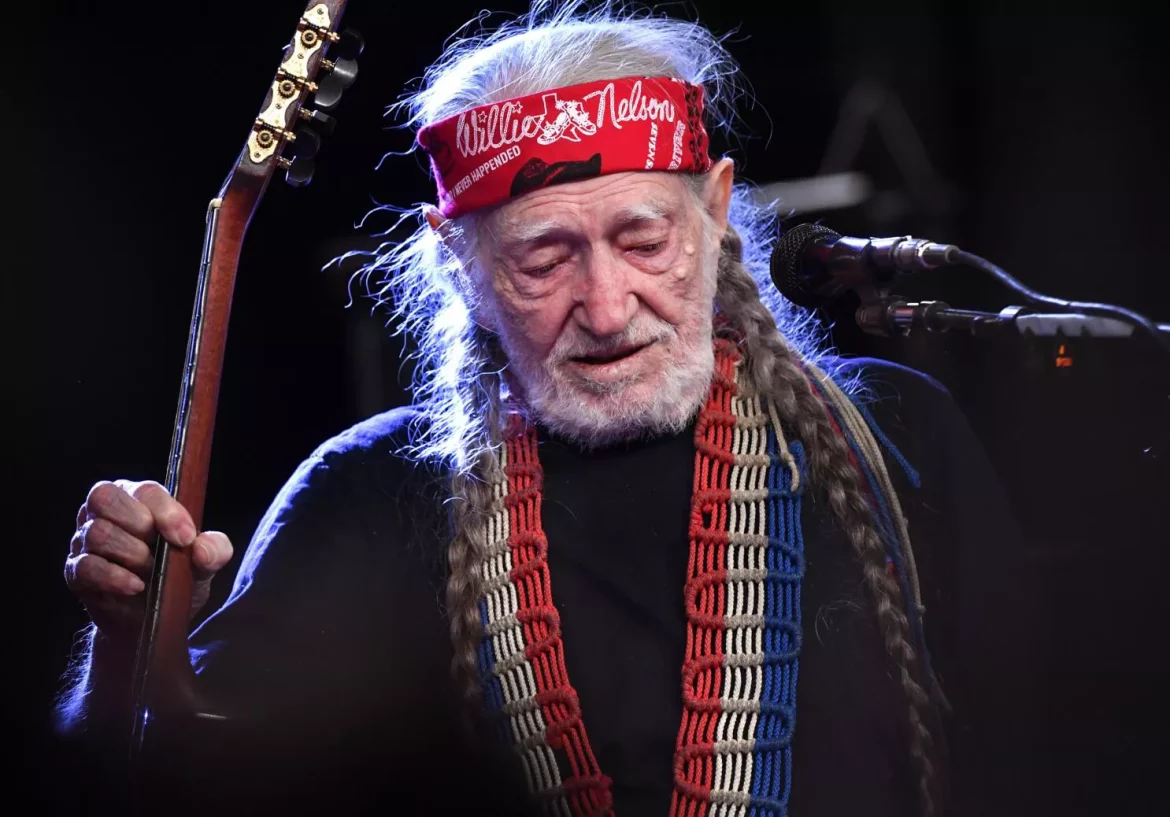Willie Nelson is a legendary figure in country music. His unique style and rebellious spirit have earned him a special place in the genre. His music is often labeled as “Outlaw Country.” This term refers to a subgenre that emerged in the 1970s. It was a reaction against the polished, commercial sound of Nashville country music at the time. Outlaw Country was raw, authentic, and deeply rooted in the traditions of folk and honky-tonk.
I. The Birth of Outlaw Country
Outlaw Country began as a movement among a group of musicians who felt constrained by the Nashville establishment. They wanted more creative freedom and sought to break away from the slick production values that dominated the country music scene. Willie Nelson, along with Waylon Jennings, Johnny Cash, and others, spearheaded this movement. They believed in a more honest, less commercial approach to music.
II. Origin and Development
1. Willie Nelson’s Early Years
Willie Nelson was born on April 29, 1933, in Abbott, Texas. He was raised by his grandparents and was introduced to music at a young age. Nelson began playing the guitar when he was six and started writing songs shortly after. His early influences included country legends like Hank Williams and Lefty Frizzell, as well as the jazz and blues music that was popular in Texas at the time.
2. Struggles in Nashville
In the early 1960s, Willie Nelson moved to Nashville, hoping to make it as a songwriter. He found some success, penning hits like “Crazy” for Patsy Cline and “Night Life” for Ray Price. However, Nelson struggled to establish himself as a solo artist. The Nashville sound, with its lush orchestration and polished production, did not suit his raw, gritty style. Frustrated with the lack of creative control, Nelson decided to leave Nashville in the early 1970s and return to Texas.
3. The Texas Scene
Back in Texas, Willie Nelson found a more receptive audience for his music. The Texas music scene was more relaxed and less commercial than Nashville. It was here that Nelson began to develop his signature sound, blending elements of country, folk, jazz, and blues. He also adopted a more casual, laid-back image, with long hair and a bandana, which set him apart from the clean-cut Nashville stars.
4. Red Headed Stranger
One of the defining moments in Willie Nelson’s career came in 1975 with the release of his album “Red Headed Stranger.” This concept album told the story of a preacher on the run after killing his wife and her lover. The sparse, stripped-down production was a stark contrast to the polished Nashville sound. The album was a critical and commercial success, solidifying Nelson’s reputation as a leading figure in the Outlaw Country movement.
5. Collaborations and Friendships
Throughout his career, Willie Nelson has collaborated with many other artists, both within and outside of the country music genre. His friendship with Waylon Jennings, in particular, was instrumental in the development of Outlaw Country. The two often performed together and recorded several successful albums, including “Waylon & Willie” in 1978, which featured the hit single “Mamas Don’t Let Your Babies Grow Up to Be Cowboys.”
6. The Highwaymen
In the 1980s, Willie Nelson, Waylon Jennings, Johnny Cash, and Kris Kristofferson formed the supergroup The Highwaymen. This collaboration brought together four of the most iconic figures in country music and produced several successful albums. The Highwaymen embodied the spirit of Outlaw Country, with their focus on storytelling and their rejection of the commercial Nashville sound.
III. Willie Nelson and Outlaw Country
1. Key Characteristics of Outlaw Country
Outlaw Country is characterized by its raw, unpolished sound and its focus on storytelling. The lyrics often deal with themes of rebellion, freedom, and the struggles of everyday life. The music itself is a blend of traditional country, folk, blues, and rock. Unlike the slick production of Nashville country, Outlaw Country is more organic and authentic.
2. Willie Nelson’s Influence on Outlaw Country
Willie Nelson’s influence on Outlaw Country cannot be overstated. His willingness to challenge the conventions of the Nashville establishment opened the door for other artists who felt stifled by the commercial demands of the industry. Nelson’s success showed that there was a market for more authentic, less commercial country music. His music resonated with a generation of listeners who were looking for something real and honest.
IV. Willie Nelson’s Legacy
Willie Nelson’s legacy in country music is immense. He has released over 70 studio albums, won numerous awards, and is considered one of the greatest songwriters of all time. His influence extends beyond the world of music; he is also known for his activism and philanthropy. Nelson has been a vocal advocate for farmers, marijuana legalization, and animal rights.
V. Impact on Modern Country Music
Willie Nelson’s influence can still be seen in modern country music. Many contemporary artists cite him as an inspiration and have been influenced by his willingness to push boundaries and challenge the status quo. The spirit of Outlaw Country lives on in the music of artists like Sturgill Simpson, Chris Stapleton, and Kacey Musgraves, who continue to blend traditional country with other genres and prioritize authenticity over commercial success.
See Also: Unveiling the Essence of Country Music: 6 Key Traits You Need to Know
VI. Conclusion
Willie Nelson’s brand of country music, often labeled as Outlaw Country, has had a profound impact on the genre. His raw, unpolished sound and focus on storytelling set him apart from the commercial Nashville sound and paved the way for a new generation of country artists. Nelson’s influence extends beyond music; his activism and philanthropy have made him a beloved figure in American culture. As long as there are artists willing to challenge the conventions of the industry and stay true to their own artistic vision, the spirit of Outlaw Country will continue to thrive.

